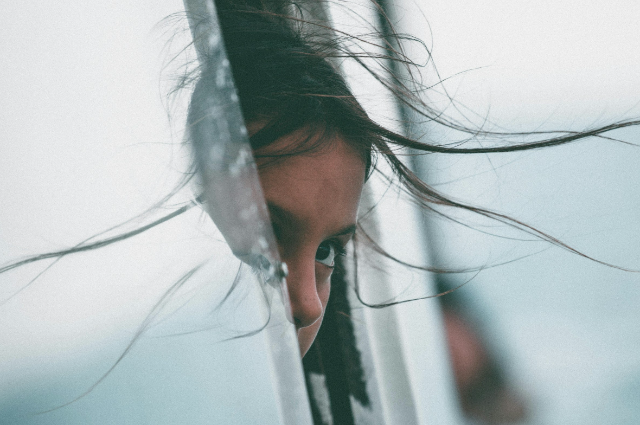
Photo by Benjamin Voros on Unsplash
How do I know if these emotions are real? What if I am just overreacting? How do I know if the things that happened to me are traumatic? And not something normal. How do I know if no one tells me?
This is the story of a little girl who is haunted by her very own memories that defined her childhood. Her mind is full of complicated, confusing, and perplexing thoughts. She cannot understand why her grandmother didn't help her mother when she knew she was being tortured by that monster, whom everyone respected as her husband. She cannot understand why her mother stayed in such a horrendous marriage. For her sake? If so, then she regrets being born. She hates her existence, she despises those so-called people who love her, and she rebels against those who create these social norms.
But she gets criticized; she is called mannerless, characterless, and dramatic by the same person she tried to protect, her mother! But little did her mother know what she felt when she saw her lifeless on the floor, just because she didn't have the tea that the monster made. That 3rd-degree burn that she had to apply medicine to still haunts her. But innocent of her, she thought how caring her father was when he brought medicines to hide his sins, because how will she know if no one tells her?
The little girl grew up being paranoid, rebellious, and an overthinker. She no longer follows them blindly; instead, she questions them and talks back. Yes, she changed. Her head was now full of imagination. She used to imagine a character so strong that she could protect herself. But sadly, even that character does not have parents. She still wonders why she made that character like that. But she still hoped for a happy family where nobody shouts at her all day, where she won't be scolded for being scared, for worrying, and for flinching.
But nobody, including herself, could understand why she was always so scared of everything. And even if she knew, she'd again debate herself about whether she even deserved to be sympathized with or if she was just playing the victim. Because how would she know if no one told her?
But apart from all this, the part she was most confused about was why everyone acted so normal. How could anyone remain normal after showing such violence to his wife? But of course, he was; at least that's what he showed. And why won't he be normal? I mean, he successfully dominated his wife to the point where she almost went crazy. And how could society think that a little violence by a husband is a good thing?
She kept questioning why when a man shows violence, it's to teach his wife, but if the same is done by the woman, it would be insulting him and his whole family. And the biggest question is: why would a woman ever tolerate this?
The answer to this question was because of her parents, society, and her children. because her parent's pride will be gone, society won't let her live peacefully, and the thought of leaving her kids with a man who is no less than a monster horrifies her.
The answer to this question was because of her parents, society, and her children. because her parent's pride will be gone, society won't let her live peacefully, and the thought of leaving her kids with a man who is no less than a monster horrifies her. In many cases, women feel trapped in abusive relationships due to societal pressures and fear of the unknown. The cycle of violence can be difficult to break without proper support and resources. These societal pressures often trap women in abusive relationships, making it difficult for them to leave despite the harm being done to them. Society needs to address these harmful beliefs and provide support for women in these situations. This cycle of violence is perpetuated because of the fear of societal judgment and the concern for the well-being of her children. The pressure to maintain appearances and the fear of the unknown can keep a woman trapped in an abusive relationship.
And the children who witness this abuse are the ones who suffer the most. They lived with those parents, laughed with them, believed in them, and loved them. And somehow everything remains the same after the violence: the children still love their parents, still laugh with them, and still live with them; they just don't trust them again. A different feeling of disgust is felt for the abuser as not their father but an animalistic man. anger towards the mother, who just tolerates this without uttering a single word. An uncontrollable rage toward those who never stopped this and were silent. and finally, the feeling of great regret for not being capable enough to protect their mother. And this regret is what keeps them alive.
The burden of guilt weighs heavy on their shoulders, as they replay the scenarios in their mind, wondering what they could have done differently. Despite the pain and trauma, they find solace in the hope that one day, they will break free from the cycle of abuse and find peace. It's a heavy burden to carry, knowing that they couldn't prevent the abuse. The guilt and shame can be overwhelming, but it also fuels their determination to never let it happen again.
And the thought of forgetting these awful memories feels injustice towards the loved one who suffered. But does this loved one even care?
Because how will they know if no one tells them?
